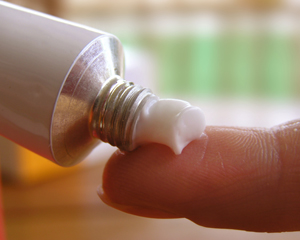Top Class Actions’s website and social media posts use affiliate links. If you make a purchase using such links, we may receive a commission, but it will not result in any additional charges to you. Please review our Affiliate Link Disclosure for more information.

Lau was 43, very healthy and had no history of heart disease prior to using testosterone gel. In keeping with his healthy and proactive lifestyle, and relying on claims made drug makers AbbieVie and Eli Lilly that “testosterone had been clinically shown to safely and effectively raise testosterone levels,” Frank agreed to begin testosterone treatment.
He was prescribed Axiron and used it as directed throughout July 2011. Lau was also prescribed AndroGel, and used it from July 2011 to September 2011.
Lau suffered from a stroke on or about Sept. 23, 2011, which he alleges was the fault of the Axiron and AndroGel treatments. As a result, for the rest of his life he must now undergo regular testing, adhere to a restrictive diet, and take medication. Due to this accident he now carries an increased risk of additional cardiovascular disease, future strokes, and death.
Many men and “secondary victims” in the growing testosterone gel class action lawsuit movement allege that drug makers are engaging in “aggressive, award-winning, direct-to-consumer and physician marketing, and advertising campaigns for testosterone.”
But the men are not properly warned about the risks that come with these testosterone gels, they claim. It’s been alleged in testosterone gel class action lawsuits that these drugs cause serious medical problems, including life threatening cardiac events, strokes, and thrombolytic events.
The AndroGel class action lawsuit movement is growing with more men joining each month.
History of AndroGel and Axiron
Unimed Pharmaceuticals originally developed AndroGel and sought approval from the U.S. Food and Drug Administration in 1999. Before approval in 2000, Solvay Pharmaceuticals acquired Unimed, and brought AndroGel to market. In 2010, Defendant Abbott Laboratories acquired Solvay’s pharmaceutical division, including AndroGel. In 2013, Abbott created AbbVie, which adopted AndroGel.
The second drug in the testosterone lawsuit is Axiron. It was originally developed by Acrux Ltd. In March 2010, Acrux and Eli Lilly entered into an exclusive worldwide license agreement to commercialize Axiron. On Nov. 14, 2012, Axiron received FDA approval.
When Unimed asked for FDA approval of AndroGel in 1999, it asserted that hypogonadism was estimated to affect approximately “one million American men.” In 2000, when the FDA approved AndroGel, the estimated market jumped to “four to five million American men.” By 2003, the number increased to “up to 20 million men.”
A study published in the Journal of the American Medical Association (JAMA) in August 2013 indicated “that many men who get testosterone prescriptions have no evidence of Low-T.” The advertising has paid off however — AndroGel was the biggest selling androgen drug in the United States during the past year with $1.4 billion in sales.
Warning Labels Aren’t Enough
In 2009 the FDA issued a black box warning for testosterone prescriptions. Later, in an effort to warn men and women of the dangers of testosterone usage, the FDA kickstarted a safety review on Jan. 31, 2014. This led to numerous media outlets reporting on the AndroGel risks.
As men became aware that their heart issues may be related to their use of testosterone products, there were so many testosterone gel complaints that a class action lawsuit was quickly formed. The victims say the drug makers knew or should have known of the risks, and intentionally hid that information from the medical community, consumers and public as a whole.
Lau claims that if AbbVie and Eli Lilly properly disclosed the risks associated with testosterone, he would have avoided the risk by either not using testosterone at all, limiting the dosage and time of use, and/or by closely monitoring how the drugs were affecting his health.
Lau is suing the testosterone drug makers for failure to warn, negligence, breach of implied and express warranty, fraud and negligent misrepresentation.
The testosterone lawsuit is Frank Lau v. AbbVie Inc., et al., Case No. 1:14-cv-01298, in the U.S. District Court, Northern District of Illinois, Eastern Division.
In general, Androgel heart attack lawsuits are filed individually by each plaintiff and are not class actions.
Do YOU have a legal claim? Fill out the form on this page now for a free, immediate, and confidential case evaluation. The attorneys who work with Top Class Actions will contact you if you qualify to let you know if an individual lawsuit or class action lawsuit is best for you. Hurry — statutes of limitations may apply.
ATTORNEY ADVERTISING
Top Class Actions is a Proud Member of the American Bar Association
LEGAL INFORMATION IS NOT LEGAL ADVICE
Top Class Actions Legal Statement
©2008 – 2024 Top Class Actions® LLC
Various Trademarks held by their respective owners
This website is not intended for viewing or usage by European Union citizens.
Get Help – It’s Free
Join a Free Testosterone Product Class Action Lawsuit Investigation
If you or someone you know suffered a heart attack, stroke, blood clot, or other injury as a result of using a testosterone gel or cream, legal options are available. Find out if you qualify to join a free testosterone gel class action lawsuit investigation and pursue compensation for you or your loved one’s injuries by filling out the form below.
An attorney will contact you if you qualify to discuss the details of your potential case at no charge to you.
Oops! We could not locate your form.












